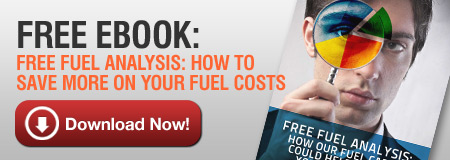Blog post -
Safety First: How the IMechE’s Proposals Affect You
We're all worrying about the increased costs of transportation and haulage, and going out of our way to embrace cost-saving measures such as company fuel cards. There is an issue though that is casting a long shadow over such financial concerns – the safety of drivers and other road users.
According to a report by the Institution of Mechanical Engineers (IMechE), there are several steps that could be taken to increase safety in the long term as detailed in their report, 'Intelligent Transport. Intelligent Society'. As ever though, there's no gain without pain. First, the stats...

The bottom line
Safety is an important concern for everyone. Even the cold-hearted among us must acknowledge that there's a high financial cost attached to traffic accidents – roughly 200,000 traffic casualties are reported each year that cost our economy £19 billion. While overall figures for road fatalities have dropped by 5% in the third quarter of 2011 compared to the same period in 2010, there are still steps that could be taken to reduce the number of fatalities among pedestrians, other drivers and, in particular, cyclists.
After all, cyclist fatalities have risen by 7% in the past year with approximately eight being seriously injured or killed each day on our roads. And a major contributor to this horrific figure is lorries; while HGVs only account for 5% of UK traffic, they are responsible for nearly 20% of Britain's cyclist fatalities.
The road ahead
The IMechE isn't interested in demonising HGV drivers; they just want to see cutting edge technology being introduced that will reduce such fatalities. This includes:
-
Collision avoidance technology such as Lateral Safe, which uses a multi-sensor system that can monitor 270 degrees of the vehicle's surroundings to warn drivers of potential accident risks at the rear or side of their vehicle, such as other vehicles or vulnerable cyclists.
-
Electronic safety systems like eCall that automatically contact the emergency services with full GPS coordinates after an accident. Such systems could reduce fatalities by up to 10%.
-
Adaptive cruise control which can sense a vehicle ahead and adjust speed accordingly to ensure a suitable stopping distance is maintained.
-
Collision warning systems that alert drivers to road hazards and, one day, could even automatically apply the vehicle's brakes to stop an accident from occurring. For instance, mounting sensors in front bumpers can detect an errant pedestrian and stop the vehicle automatically.
-
Installing more technology on the humble steering wheel. This could play a much larger role in safety; for instance, built-in touch sensors that replace traditional controls for operating systems such as heating; vibrations sent through the wheel to notify drivers that they are leaving a lane or are experiencing drowsiness; microphones integrated into the steering wheel for hands-free use of mobile phones; and more.
The downside... and the upside
The IMechE wants safety kit introduced to HGVs before 2015; a potentially huge financial headache for any company director. But the institute is adamant that there is an upside – it believes that British businesses could become a lead player in the design and rolling out of such 'intelligent transport technology' for a market they predict could be worth £40 billion by 2020.
While our focus here at The Fuelcard Company is on helping companies drive down costs via our range of company fuel cards, we believe that any technology that can reduce fatalities on the road can only be a good thing. The real question is whether the government would be prepared to make cuts to, say, fuel duty in order to help company directors afford such life-saving technology. Over to you, Osborne...
For ideas on how to reduce fuel costs through our range of company fuel cards, please download our eGuide ‘Free fuel analysis: how our fuel cards could help you cut your fuel costs’.

Guest Post: James Knight is the fuel management consultant of The Fuelcard Company, the largest commercial reseller of company fuel cards in the UK. You can read more on his expertise in fuel control and solutions on vehicle maintenance by reading Fuel Cards Blog here. You can also find him on Google+ and Twitter.
Topics
- Business enterprise, General
Categories
- fuel
- fuel cards
- fuel costs
- the fuelcard company
- uk traffic
- imeche
Regions
- England